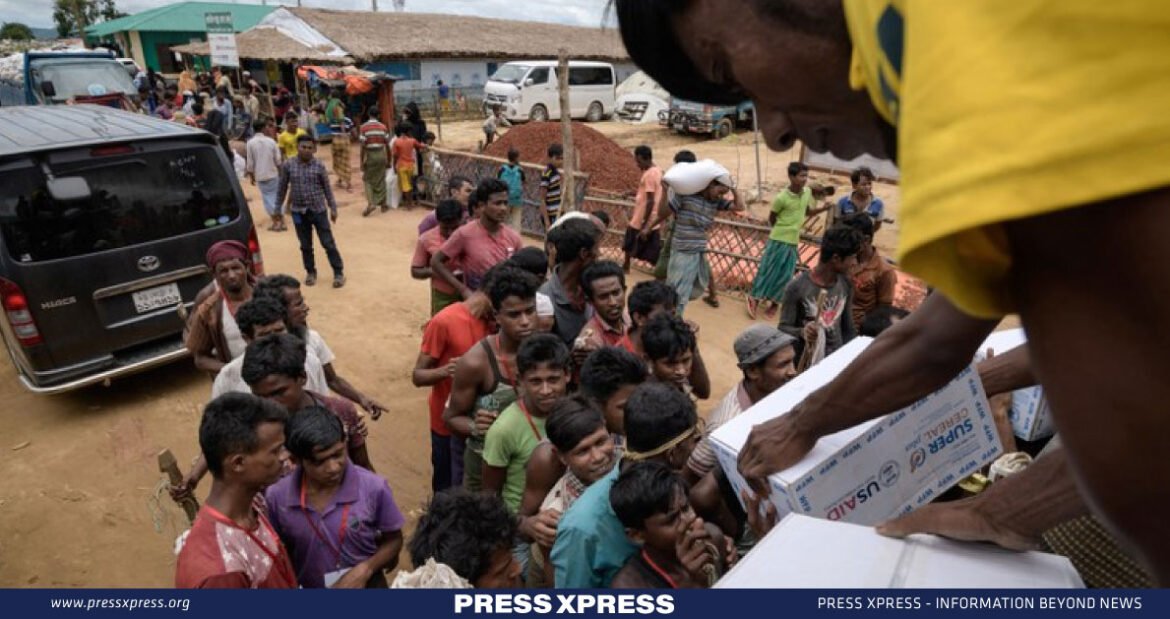The Rohingya crisis, with its devastating impact on hundreds of thousands of lives, has catapulted Bangladesh to the receiving end of a refugee crisis. The United States has taken a prominent role in addressing this crisis, providing crucial aid and advocating for lasting solutions.
You Can Also Read: Time to Recover Trade Gap Between Bangladesh and USA
Since the outbreak of violence in 2017, nearly a million Rohingya have been forced to flee their homes in Myanmar, seeking safety and refuge in neighboring Bangladesh. The US has demonstrated its commitment to alleviating the suffering of the Rohingya people by contributing substantial humanitarian assistance.
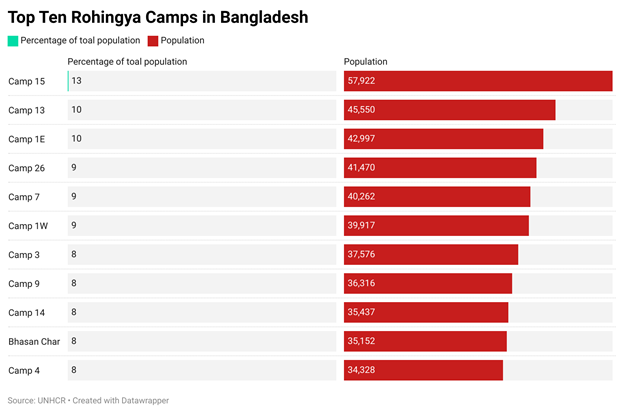
Bangladesh now likely hosts more than one million Rohingya (971,904 have been issued official documentation, with many more undocumented) refugees in sprawling camps, and the country relies heavily on Government and international support to meet their basic needs.
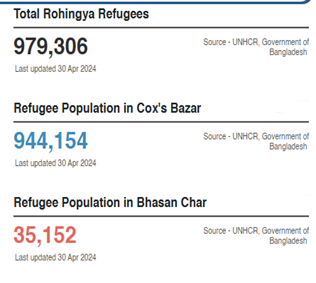
Recognizing the urgency of the situation, the US continues to pledge aid and explore resettlement options for the displaced Rohingya. This article examines the current efforts of the United States in mitigating the Rohingya crisis, as well as its potential future role in working alongside Bangladesh to find durable solutions for the refugees.
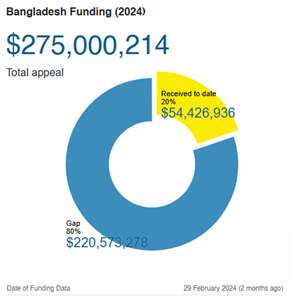
Official US Policy Regarding Rohingyas
The United States has been unwavering in its support for the Rohingya, the United States has taken a principled stance by officially recognizing the atrocities committed against the Rohingya as genocide, holding the Myanmar military accountable for their actions.
The US has imposed targeted sanctions on Myanmar’s military leaders who bear responsibility for the violence, sending a clear message that such crimes will not be tolerated. Furthermore, the United States continues to advocate for justice and accountability, supporting efforts to create the necessary conditions for the safe and voluntary return of the Rohingya to their homes in Myanmar.
Past US Role in the Rohingya Crisis
Under the Obama administration, the United States led efforts to welcome Myanmar back into the international community, lifting a range of sanctions and re-establishing diplomatic relations.
However, when the violence against the Rohingya escalated to alarming levels, the US took a firm stance, condemning the actions of the Myanmar military as “ethnic cleansing” and later recognizing the atrocities as a “genocide.” In response, the US reimposed targeted sanctions on Myanmar’s military leaders to hold them accountable for their actions.
Since then, the United States has taken on a vital role in responding to the Rohingya crisis, demonstrating a steadfast commitment to addressing the urgent needs of the refugees. The United States has become the single largest donor of humanitarian assistance to those affected by the Rohingya crisis in Myanmar, Bangladesh, and the region. Total U.S. funding for this crisis has reached nearly $2.4 billion since August 2017, of which over $1.9 billion has been provided for refugees and host communities in Bangladesh.
Future of US Support for Rohingya Crisis
The United States remains steadfast in its commitment to providing substantial support for the Rohingya crisis, with plans to continue its efforts in the coming years. In 2024, the US has pledged to increase the resettlement of Rohingya refugees from Bangladesh through the US Refugee Admissions Program (USRAP), offering a glimmer of hope for those who have been displaced.
The United States also encourages other nations to follow suit and bolster their own resettlement efforts, recognizing that a global response is necessary to address this humanitarian catastrophe effectively.
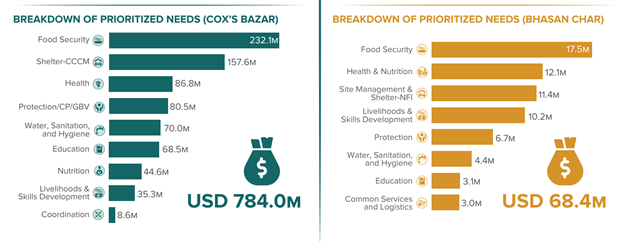
The 2024 Joint Response Plan, a collaborative effort led by the United Nations and its partners, has set a target of raising $852.4 million to support Rohingya refugees and host communities in Bangladesh, highlighting the ongoing need for international support.
The United States remains dedicated to providing critical humanitarian aid, focusing on essential areas such as food, shelter, health care, and education, to ensure that the basic needs of the Rohingya are met as they navigate the challenges of life in refugee camps.
Beyond providing direct aid, the United States has actively sought to mobilize international cooperation to support the Rohingya refugees and apply pressure on Myanmar to create the necessary conditions for their safe and voluntary return.
Conclusion
The Bangladesh government and its people have shouldered an immense burden in the face of this crisis. It is high time now that the international community steps up to share this responsibility, recognizing that a global response is necessary to address the scale and complexity of the situation effectively so that Rohingya refugees can go back to their homeland.
Looking ahead, the future support provided by the United States will be a critical factor in ensuring stability and providing a sense of hope for the Rohingya people, who have endured unimaginable hardships.
While political changes within the US have the potential to impact the level of support available, the fundamental need for humanitarian assistance remains constant and unyielding. Ultimately, it is only through sustained commitment and close cooperation on a global scale that we can hope to address this ongoing crisis effectively, working tirelessly to alleviate the suffering of the Rohingya and pave the way for a brighter, more secure future.

